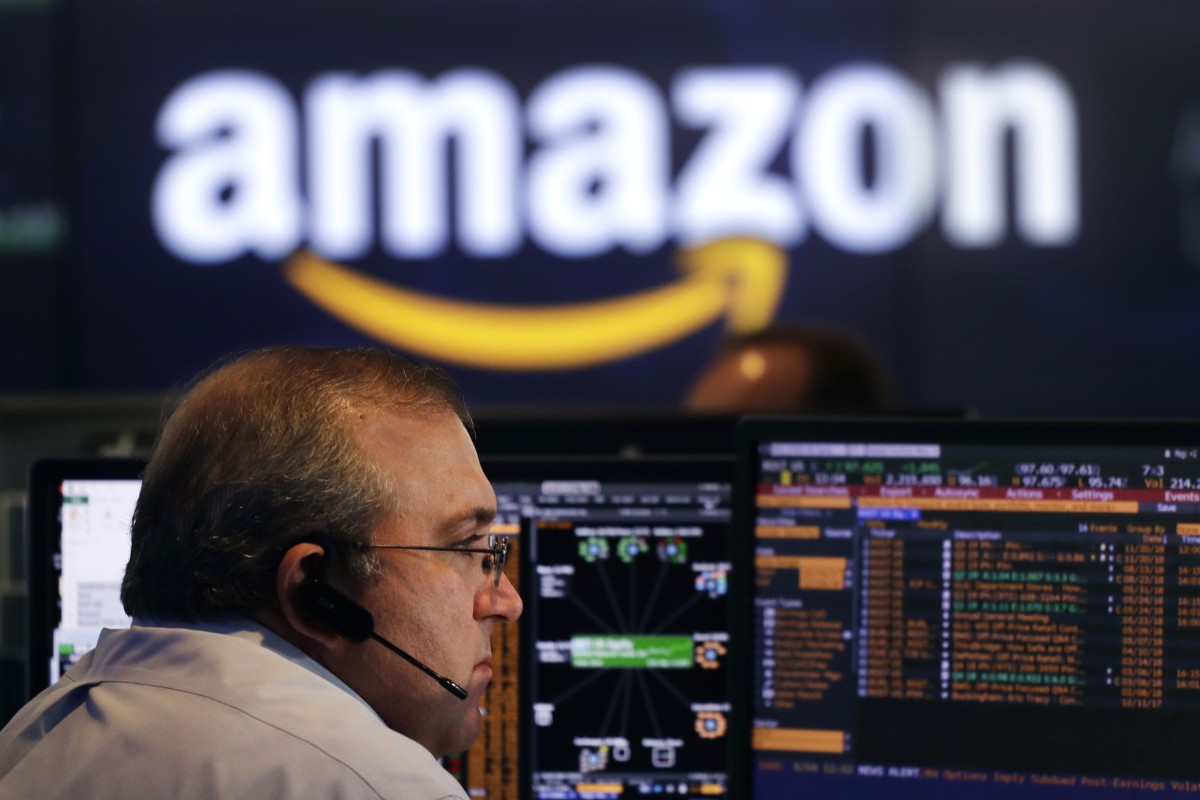
Why the US-China Tech War Spells Bigger Trouble For Investors than Conflict Over Trade
Yet, every time markets have tumbled, asset prices have quickly recovered. This is partly because investors have grown accustomed to the erratic and impulsive behaviour of US President Donald Trump, who has blown hot and cold on the prospect of a deal with Beijing, fuelling speculation that an agreement will eventually be reached.
Another reason the sell-offs have been short-lived is because the tariffs themselves have so far had a limited impact on global growth, particularly in the US which is not an export-dependent economy.
However, the recent shift in the focus of the conflict from trade to technology marks a new, more perilous phase of the confrontation which raises the stakes for markets significantly.
The fast-growing tech sector has powered the decade-long rally in equities. While the benchmark S&P 500 index has surged 215 per cent over the past decade, the gauge’s information technology index has skyrocketed over 365 per cent.
In the first half of last year, tech stocks accounted for 98 per cent of the returns of the S&P 500. While the sector was recently broken up under a new classification system in equity markets, tech-focused stocks account for 30 per cent of the market capitalisation of the S&P 500.
SUBSCRIBE TO Opinion
Get updates direct to your inbox
SUBMIT
By registering for these newsletters you agree to our T&C and Privacy Policy
In developing economies, the industry’s real weighting in the benchmark MSCI Emerging Markets Index amounts to 28 per cent, with two Chinese tech stocks alone – Tencent Holdings and Alibaba Group Holding – accounting for nearly 10 per cent of the gauge.
What is more, investors, while having reduced their holdings of tech shares following the sharp sell-off in equity markets at the end of last year, remain heavily exposed to the sector. According to the latest edition of Bank of America Merrill Lynch’s fund manager survey – carried out from May 3-9, just when Trump escalated the targeting of Chinese tech firms – 34 per cent of those polled had an overweight position in tech, the highest allocation in 14 months and the most popular sector among the 250 panellists who took part.
Apple CEO Tim Cook discusses Apple News during a launch event at Apple headquarters on March 25 in Cupertino, California. The company’s news and game subscription offerings are part of an effort to break its reliance on iPhone sales. Photo: AFP
Share:
This high exposure has proved costly for investors over the past month. The New York Stock Exchange’s FANG+ Index – which tracks a basket of 10 global tech companies, including Facebook, Apple and Chinese internet giant Baidu – has plunged 15.5 per cent since May 3. The Philadelphia Semiconductor index – a gauge composed of firms that design, distribute and manufacture semiconductors – is down almost 17 per cent, its sharpest monthly decline since the global financial crisis.
Expert says China needs more than 10 years to build its own chip industry
Although it is too early to say whether the White House’s crackdown on Huawei Technologies and other Chinese tech firms is a game-changing moment, it accentuates concerns about one of the most important pressure points in markets and has already changed the narrative of the US-China conflict.
Investors are now more cognisant of the acuteness of the commercial and geopolitical tensions between the world’s two largest economies amid warnings of a digital iron curtain separating the world into two opposing tech spheres.
The optimism in markets about a trade deal in the first half of this year has vanished, supplanted by growing fears of a prolonged, tech-focused standoff that disrupts supply chains, impacting global growth. In a sign of increasing concerns about the conflict, investors are seeking refuge in so-called haven assets, with the yield on benchmark 10-year US Treasury bonds falling to 2.26 per cent on Wednesday, its lowest level since September 2017.
Still, a sharp and sustained tech-led sell-off may be what is required to force both sides – particularly Trump, who sets great store by the performance of the S&P 500 – to de-escalate the conflict.
What is clear is that the dramatic recovery in markets in the first four months of this year – the S&P 500 hit an all-time high on May 3 while the yuan stood at its lowest level versus the US dollar since last July on April 17 – provided little incentive for both sides to compromise.
While political and economic considerations will prove just as important in determining the timing of any trade truce, markets have a critical role to play in dictating how much longer the hostilities will persist. Another relief rally – especially one that originates from Trump’s capricious Twitter feed – will prove counterproductive.
The reality is that the current deterioration in sentiment needs to be more severe to help create the necessary conditions for a meaningful easing of trade tensions. Investors, particularly those in the hard-hit tech sector, should be careful what they wish for.


